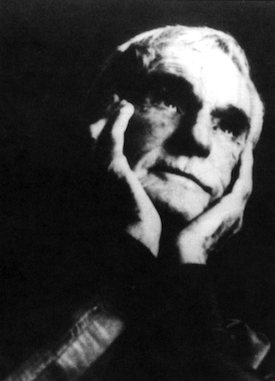
Timothy Leary died on May 31, 1996. Timothy Leary died as he lived, in public. After announcing that he had inoperable prostate cancer, he held court at his Beverly Hills home, was feted at the Hog Farm’s annual picnic, interviewed on TV and radio talk shows and in various newspapers and magazines, including Time. An active website appeared, giving daily updates on his condition and a detailed record of his drug intake—including numbers of cigarettes, “Leary biscuits” (Ritz Crackers, a pat of cheese, a bud: microwave), and what seemed to be his drug of choice, nitrous oxide. His message was as simple and radical as ever: I’m dying, and I’m going to enjoy it. I am looking forward, he said, to this last great adventure.
There were many adventures and many Timothy Learys—the West Point dropout, the academic psychologist, the sober researcher turned mad scientist, the psychedelic Pied Piper, the seeker in India, the prolific writer (psychedelic adaptations of the Tao Te Ching and the Tibetan Book of the Dead, autobiographies, theoretical and visionary tracts), the jailbird, the daring escapee, the hunted political exile (“the most dangerous man in America,” said Nixon) given shelter by Weathermen and Black Panthers, the philosopher-sage, the lover, the stand-up comedian, the cybervisionary joining with the far-out kids of the next generation to expand consciousness on the Web. A master trickster, he was always full of surprises, but somehow he managed to surf through all the ups and downers with a Huck Finn grin, a wild Irish wit, and an unsuppressable gusto—to mix a few metaphors.
The biggest (and last) surprise of all was the manner of his death. It was not just that he brought dying out of the closet in a culture that treats it either as a dirty secret or the ultimate failure—he brought it into America’s living rooms via the multiple media he had learned to manipulate so well. Of course others have labored honorably to give death dignity, but it was Timothy’s particular genius to claim that death could be fun. Like Socrates, that other philosopher-corrupter of youth and enemy of the State, he turned his death into his final lesson, demonstrating that it was possible not only to live with joie de vivre, but to die withjoie de mourir. That was his final grace and gift to us. After all, as he put it to close friends and family, in his cryptic last words: “Why not? Why not? Why not?”
Thank you for subscribing to Tricycle! As a nonprofit, we depend on readers like you to keep Buddhist teachings and practices widely available.